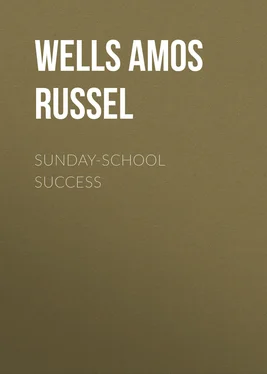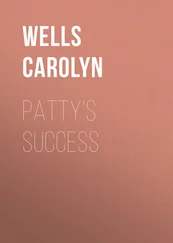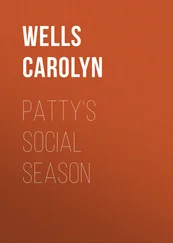Amos Wells - Sunday-School Success
Здесь есть возможность читать онлайн «Amos Wells - Sunday-School Success» — ознакомительный отрывок электронной книги совершенно бесплатно, а после прочтения отрывка купить полную версию. В некоторых случаях можно слушать аудио, скачать через торрент в формате fb2 и присутствует краткое содержание. Жанр: foreign_prose, foreign_religion, Философия, foreign_psychology, foreign_antique, на английском языке. Описание произведения, (предисловие) а так же отзывы посетителей доступны на портале библиотеки ЛибКат.
- Название:Sunday-School Success
- Автор:
- Жанр:
- Год:неизвестен
- ISBN:нет данных
- Рейтинг книги:5 / 5. Голосов: 1
-
Избранное:Добавить в избранное
- Отзывы:
-
Ваша оценка:
- 100
- 1
- 2
- 3
- 4
- 5
Sunday-School Success: краткое содержание, описание и аннотация
Предлагаем к чтению аннотацию, описание, краткое содержание или предисловие (зависит от того, что написал сам автор книги «Sunday-School Success»). Если вы не нашли необходимую информацию о книге — напишите в комментариях, мы постараемся отыскать её.
Sunday-School Success — читать онлайн ознакомительный отрывок
Ниже представлен текст книги, разбитый по страницам. Система сохранения места последней прочитанной страницы, позволяет с удобством читать онлайн бесплатно книгу «Sunday-School Success», без необходимости каждый раз заново искать на чём Вы остановились. Поставьте закладку, и сможете в любой момент перейти на страницу, на которой закончили чтение.
Интервал:
Закладка:
Chapter III
Preparing the Lesson
Some teachers think that preparing the lesson is merely the loading of a cannon with powder, that it may go off with a big bang in the presence of admiring scholars. And the more powder, the bigger bang. So they load up with scintillating similes, and pretty parables, and striking stories.
Other teachers have set up some historical or theological or ethical target-board off at a distance from their class, and load their cannon with ball, that their scholars may see how accurate is their aim and how fairly they can hit the bull's-eye. So they prepare a mass of facts and figures, arguments and evidences.
But the wise teacher rejects in toto the cannon notion. He sees in each lesson a ledge of that grand mountain of life—of Christ-serving, strong life—up to which he must lead his little band, on which he must plant their feet so firmly that they may not slip back during the six days' interval, but may be ready for the next fair terrace, and the next.
So the wise teacher, in preparing the lesson, knows that he must first reach that ledge himself; must repeat the journey over and over until he has learned the easiest way for little feet; must make ladders with rounds close together; must spread sand on slippery places and stretch ropes along the edge of the cliff. He, too, lays in supplies of stories and pretty parables, not, however, in the form of powder, to make a show, but (if this is not too severe a twist of the simile) as dainty food to keep the young travelers fresh and hearty. He, too, has facts and figures and arguments and evidences, not, however, as cannon-balls, but in the shape of iron bridges and railings and ropes, that the way may be solid and safe.
There are some teachers that do not study at all. It is as if a will-o'-the-wisp should undertake to guide one on an important journey. Those teachers are going they know not whither, over they know not what road, for what purpose they have not the slightest idea, and land always in a bog.
Emphatically, the teacher that is not always climbing himself will leave his class on a very dead level indeed. He should be reaching down and pulling them up, but he is soon compelled to stand where they are and push, and ends with believing his "level best" to lie along the smooth road of the easy-going valley.
The teacher who ceases to grow ceases to teach. That is why a Sunday-school lesson cannot be crammed. That is why preparation for it must extend all through the week. Growth cannot be ordered offhand. It comes from Father Time's shop, and he is a deliberate workman. You will lose your hold on your class if each Sunday hour does not begin with you a little above them, and end with them at your level. This advance cannot be won Saturday night, or during the space between the first and second bells for Sunday-school. Such a spasmodic leap ahead will leave you too much out of breath even to tell them to come on.
Dropping metaphor, of which we may have had too much, there are several substantial reasons why the Sunday-school preparation should extend over the seven days of the week. Thus only can you utilize in the Master's work odd bits of time, your Bible on the bureau while you dress, in your hands on the street-cars or while you wait for the meat to be cooked. There are many Bible verses which should be carefully committed to memory in connection with each lesson, as the teacher's best reliance for commentary and inspiration. These verses should be running through our heads as we run on all our six-day tasks, and should sing themselves to all our labor-tunes. But chiefly, it is only in this way that we can accumulate hints, and grow into the truths of the lesson by experience. With the lesson theme for a nucleus, it is astounding to see what a wealth of illustration, of wise and helpful comment, each day's living thrusts upon us. Every event is a picture of some truth which needs only a sensitive plate to be photographed forever. That sensitive plate is a mind which is studying that particular truth.
How much time do you spend in studying your Sunday-school lesson? You see that no true teacher can answer that question, any more than the poet can tell how long he is in writing his poem. This is the inspirational part of the teacher's work, and not the mechanical part, and his brooding will have issue of life just in proportion as the Holy Spirit dwells in his heart. But along with this lofty work must go lower processes, of which it is far easier to speak. I mean those lower processes which alone we are likely to call "studying." Permit me to lay down a programme for the study of a Sunday-school lesson.
To begin with, let it be always with pencil in hand. You have seen iron filings scattered in rough confusion over a sheet of glass. And then, when the magnet was placed beneath, you have seen those ugly bits of metal dance into the daintiest designs, fairy curves and most symmetrical figures. Such a delightful magnet is a pencil or a pen for all the disordered thoughts and fancies of our brains. Next to the Bible, the Sunday-school teacher's inseparable companion should be a lead-pencil.
What book is nearest you while you study your lesson? Teachers may be classified finally by their answers to that question. Is it the commentary, the atlas, the Bible dictionary, the concordance, the question-book, or the Bible? If the commentary, your comments will fall fruitless to the ground. If the atlas, your class will wander nowhither. If the Bible dictionary, your diction will have no issue in deed. If the concordance, your class will know little from you of that concord which passes understanding. If the question-book, the value of all your study is at least questionable. No; let me emphasize this statement: Not a single lesson help should be touched until everything possible to be learned about the lesson from the Bible directly has been learned .
For this you will need two Bibles at least, one to be kept open at the lesson, one to turn back and forth in pursuit of references and information. The first must be a King James reference Bible; the second, the noble translation of Victoria's reign. Thus furnished, read the lesson. As you read, examine your mind. What questions assail it? Those moments are full of matter. Those questions are the clues to the lesson labyrinth. Those perplexities constitute your programme. "I wonder where this place is?" you will say to yourself. "Who was this man, and what was his past history, that he did this deed? What does this odd phrase mean? Is that sentiment a just one? Is that act a model for us modern folk?"
As these difficulties come up in your slow and thoughtful reading, jot them down, and the resultant half-sheet of scribbling means half the work accomplished. But hold! Did you read through a child's eye as well as your own? Did you read in the plural number? If not, you must read the lesson once more, with a poet's imagination noting this time the difficulties which you strode easily over, but which would soon trip up little feet. When you write down such points on your paper, underscore them. And underscore them again. A vast deal of preparation for teaching is fruitless because it is made in the singular number.
The next stage in our lesson study will be to answer our questions. Points in regard to antecedents and motives will be answered by the chapters intervening between the last lesson and this. Those should next be read. Many difficulties concerning customs and laws will be cleared up by parallel passages and the references of your reference Bible. Those same references will collate for you helpful utterances on the ethical problems of the passage. Comparatively few people know, by the way, how nearly a reference Bible allows one to dispense with the Bible dictionary, Bible index, concordance, and commentary. I am continually astonished to see how few are the questions which may be asked about a passage that the Bible itself does not answer if closely scrutinized.
Читать дальшеИнтервал:
Закладка:
Похожие книги на «Sunday-School Success»
Представляем Вашему вниманию похожие книги на «Sunday-School Success» списком для выбора. Мы отобрали схожую по названию и смыслу литературу в надежде предоставить читателям больше вариантов отыскать новые, интересные, ещё непрочитанные произведения.
Обсуждение, отзывы о книге «Sunday-School Success» и просто собственные мнения читателей. Оставьте ваши комментарии, напишите, что Вы думаете о произведении, его смысле или главных героях. Укажите что конкретно понравилось, а что нет, и почему Вы так считаете.












